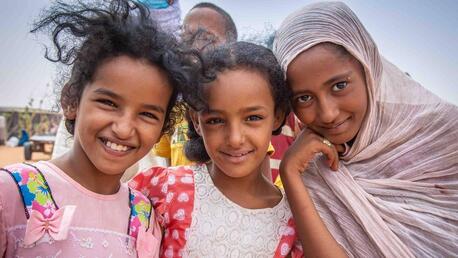
UNICEF in Mali
Together with partners, UNICEF continues to work across many program areas to help vulnerable children and families in Mali.
Crisis in Mali
The children of northern Mali were already suffering many hardships when conflict erupted in 2012 in the form of a military coup and the occupation of the north by armed groups.
Coming on the heels of a food crisis that sent malnutrition surging across the Sahel region, the war exacerbated food insecurity, prompting UNICEF to deploy an emergency response that continues today.
That response focuses on delivering aid to tens of thousands of refugees living in the Mbera camp in Mauritania near the Mali border. Hundreds of thousands of others remain displaced inside the country and in need of support.
The combined effects of insecurity, political instability, climate change and the COVID-19 pandemic have only intensified population needs. In all, an estimated 7.5 million people — including over 5 million children — are in need of humanitarian aid.
How UNICEF is helping the children of Mali
Together with partners, UNICEF continues to work across many program areas to help at-risk children and families.
These efforts include:
- improving access to safe water and hygiene services
- providing nutrition support to children at risk of malnutrition and treat children suffering from severe acute malnutrition
- reaching displaced children living in camps or in host communities with psychosocial support in UNICEF-supported child-friendly spaces
- improving children's access to quality formal and non-formal education in safe and protective learning environments
- assisting children who are released from armed groups reintegrate back into their communities
Help UNICEF support and protect vulnerable children and families around the world. Donate today.